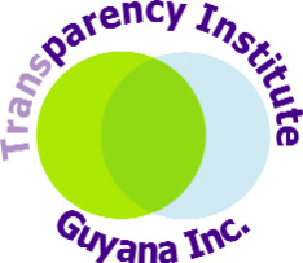Transparency International defines corruption as the abuse of entrusted power for private gain. This essentially refers to a situation where someone misuses his or her authority to engage in actions from which he or she benefits. It may be a traffic police officer who asks for a bribe; a project officer who uses project assets for personal use; or a Minister of government who demands a fee for a contract to be issued. Large (grand) or small (petty), and irrespective of who initiates it, corruption is wrong and it is a criminal act.
Guyana has seen an upsurge in activities and events which has resulted in corruption being discussed publically and more constructively than in the past. The Transparency Institute Guyana Inc. (TIGI) has publically lauded the Government for taking actions to withdraw the Memorandum of Understanding with Natural Globe Inc. Internationally, we have witnessed unprecedented efforts by ordinary citizens, watchdog bodies and governments, to hold the corrupt to account. For example, this year, about 150,000 demonstrators took to the streets in several Brazilian cities in opposition to corruption and the billions of dollars of spending on football World Cup preparations.
Corruption is not unique to Guyana. It happens everywhere but what exactly does the anti-corruption agenda mean for

